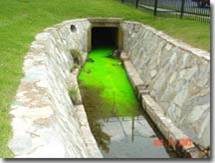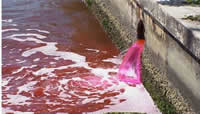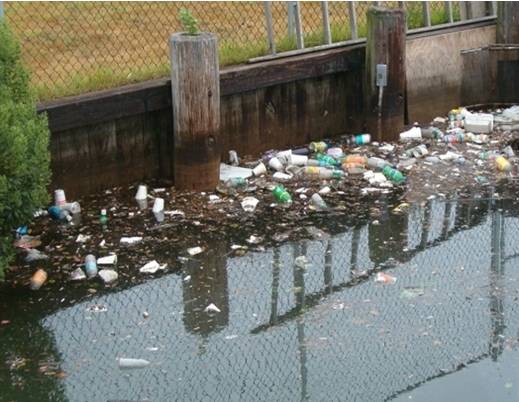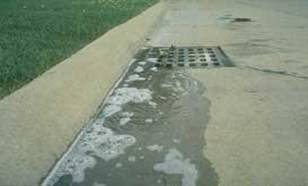Nassau County’s waterways are used for fishing, swimming, surfing and boating. Our waterways are an exceptionally important aspect of our quality of life.
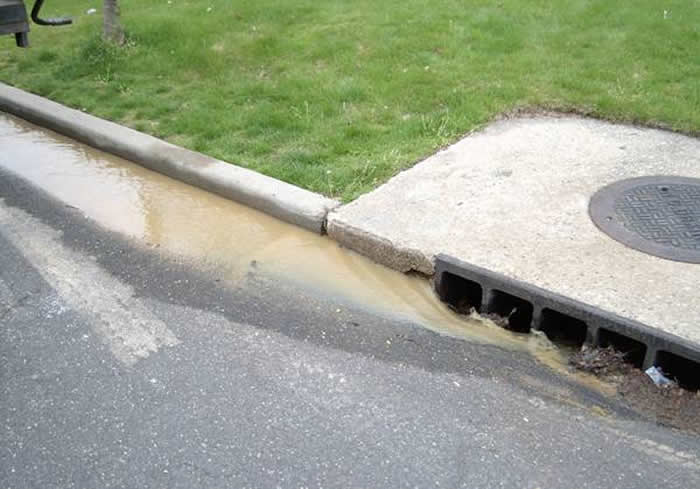
How can we, as residents of Nassau County, ensure that our waterways stay clean, healthy and pollutant-free?
...by controlling our storm water runoff, keeping an eye out for and reporting illicit discharges.
What should homeowners do to dispose of harmful chemicals such as motor oil, antifreeze, pesticides or herbicides?
Contact the STOP Program of your town
Town of Hempstead (516) 378-2200
Town of N. Hempstead (516) 767-4600
Town of Oyster Bay (516) 677-5823
Rain is natural - storm water isn't.
Up to 70% of the pollution in our streams and waterways is carried there by storm water and about half of the pollution that storm water carries comes from things we do in our yards and gardens.
Why is Storm Water Pollution a Problem?
Unlike water that goes into our sanitary sewers, from our showers and toilets for example, and is treated, storm water, and all that it is carrying, is not treated before being discharged to our surrounding water bodies.
———————————————————————
Storm water pollution can harm fish and other aquatic wildlife, kill native vegetation, destroy aquatic habitats, and make recreational areas unsafe & unpleasant.
——————————————————————-
Nutrients carried by storm water, or released into surface waters when they decay, may also cause undesirable algae and vegetative growth, which can ultimately kill aquatic life.
——————————————————————
Substances carried by storm water that are considered to be pollutants are:
- Sediment, trash and debris
- Oil, grease and toxic chemicals
- Soap and paint products from outdoor maintenance activities
- Pesticides and fertilizers from lawns & gardens
- Viruses, bacteria, and nutrients from pet waste and failing septic systems
|
What is Storm Water?
Storm water comes from the precipitation that flows across the ground or pavement when it rains or when snow and ice melt.
———————————————
This water seeps into the ground or flows into our storm drains. These are the drains that you see at street corners or low points on the sides of your streets.
————————————————
Storm water runoff is a concern because of the pollutants it may carry as it is conveyed to the nearest body of water, such as a local stream, pond, harbor or the ocean or bays.

|
What has the County been doing to protect our waterways from contaminated storm water?
- Nassau County Environmental Bond Act Referendums ($150 million): These projects are county-wide and include sedimentation basins, in-line treatment devices, wetland plantings, catch basin inserts & floatable removal structures.
- Capital projects implemented: Silver Lake, Lofts & Mill Ponds, Roosevelt Preserve, and Massapequa Preserve restoration projects.
- The three (3) storm sewersheds that make up the Pathogen Impacted Watershed that go to Oyster Bay were studied and mapped.
- Outfall Reconnaissance Inventory and Stream Assessments
- Drainage Use Ordinance on the books.
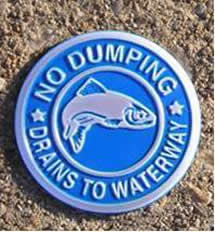
- Illicit Discharge Hotline (516) 571-6863
- Distributed almost 7,000 catch basin medallions to 34 different cities and villages. These informative tools educate the public about where the water on their streets drains to with phrases such as “No Dumping-Drains to Waterway”.
- Gave more than 52,000 pieces of educational material to the County’s various cities, towns, villages, libraries, and local environmental groups. These consist of County-designed bookmarks and brochures, as well as materials from the USEPA. They are geared towards educating the homeowner, as well as business owners, and give tips on how to prevent storm water pollution.
- Training of County employees with the Storm Water BMP video.
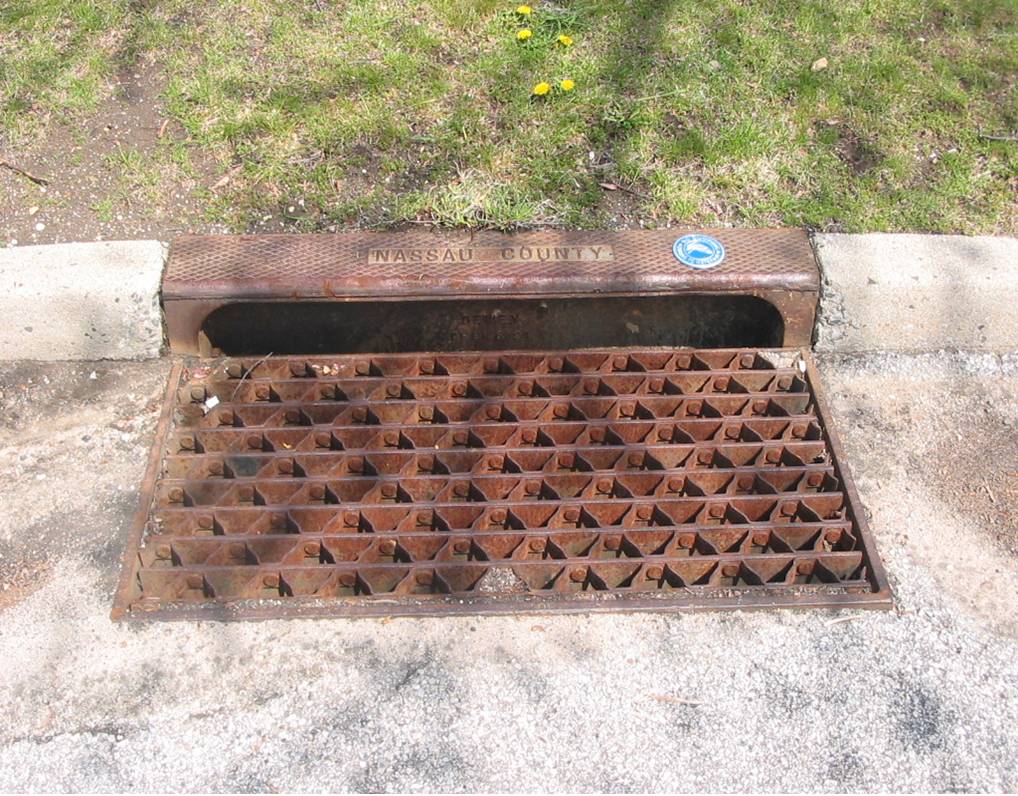 What is an illicit discharge?
What is an illicit discharge?
An illicit discharge is typically anything other than rainfall or snow melt that enters a storm drain or basin.
What do I look for?
1) Water flow during dry weather
2) Dirty, oily or soapy discharge
3) Foul odors coming from the drainage system
4) Staining of pavement or unusual colors around a drain area
What do I do?
1) For illicit connections or discharges contact the County at: StormWater2@nassaucountyny.gov or at the Illicit Discharge Hotline: (516) 571-6863
2) For illegal dumping, notify the police
Did you know that it is
AGAINST THE LAW TO FEED THE GEESE* IN NASSAU COUNTY PARKS?
*All migratory waterfowl
For more information visit www.nassaucountyny.gov/agencies/DPW/stormwater.html




 What is an illicit discharge?
What is an illicit discharge?